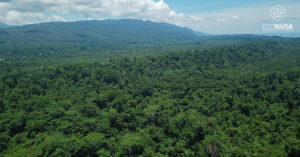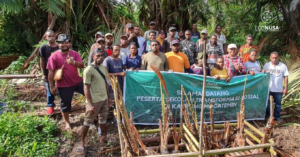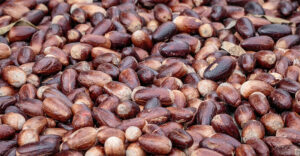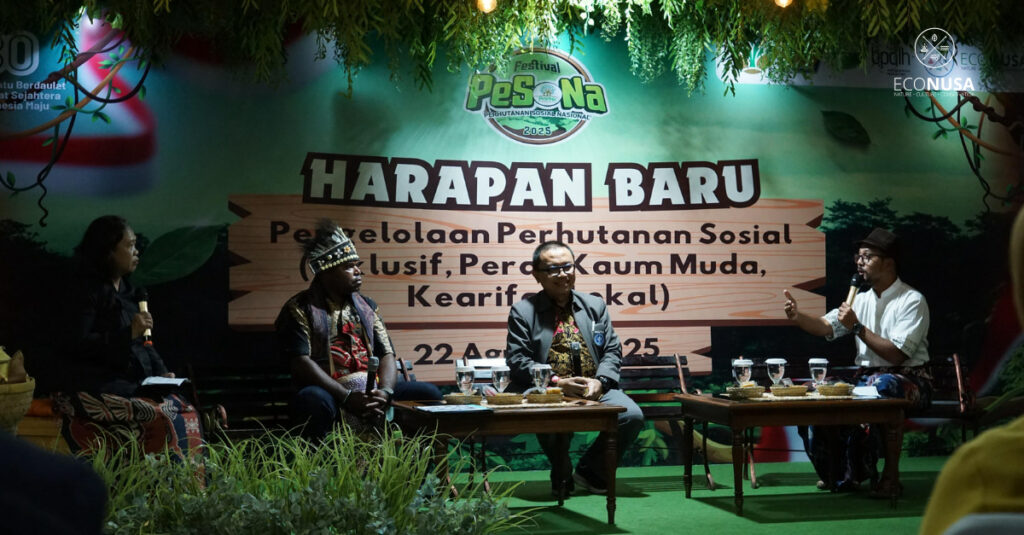
For Indigenous Papuans, the forest is not just a collection of trees. The forest is “mama”, a mother who gives life, protects, and provides sustenance. From the forest, they obtain food, water, medicines, timber, and cultural identity passed down through generations. This relationship is not merely economic but deeply spiritual. That is why, when the forest is destroyed, communities feel as though they have lost the very mother who gave them life.
This awareness drives Indigenous communities in South Sorong to fight for their rights over ancestral lands. For years, they have faced threats from oil palm plantation expansion. Permits granted to companies often triggered conflicts, not only with local people but also with nature itself. When forests were cleared, rivers became polluted, and the spaces that sustained their lives were pushed to the brink of disappearance.
Read also: KPK Urges West Papua to Follow Up Palm Oil License Review
A 2021 investigation by the West Papua Provincial Government revealed that many palm oil companies had violated regulations. In response, South Sorong Regent Samsudin Anggiluli took the bold step of revoking permits and returning land management to local communities.
After the revocations, and with support from EcoNusa, communities worked together to carry out participatory mapping of their territories. Elders, youth, women, and village authorities gathered to draw boundaries, discuss histories of land tenure, and compile Indigenous community profiles.
“Youth play a vital role as the spearhead of the community, standing at the frontline. They must know the boundaries of their territory, and they must have a sense of ownership,” said Onesimus Ebar, Head of EcoNusa’s South Sorong Office, during the New Hopes: Social Forestry Management discussion at the 2025 Social Forestry Festival held by the Ministry of Forestry on August 22, 2025.
In 2023, the Indigenous community committee verified the mapping documents. A year later, the South Sorong District Government formally recognized the customary territory of the Nakin Onim Fayas sub-tribe, covering Mogatemin and Onimsefa villages in Kais Darat District, spanning 50,136 hectares. This territory is now being submitted to the Ministry of Forestry for designation as a customary forest under the social forestry scheme.
Read also: Victory! Indigenous Communities Secure Their Ancestral Lands
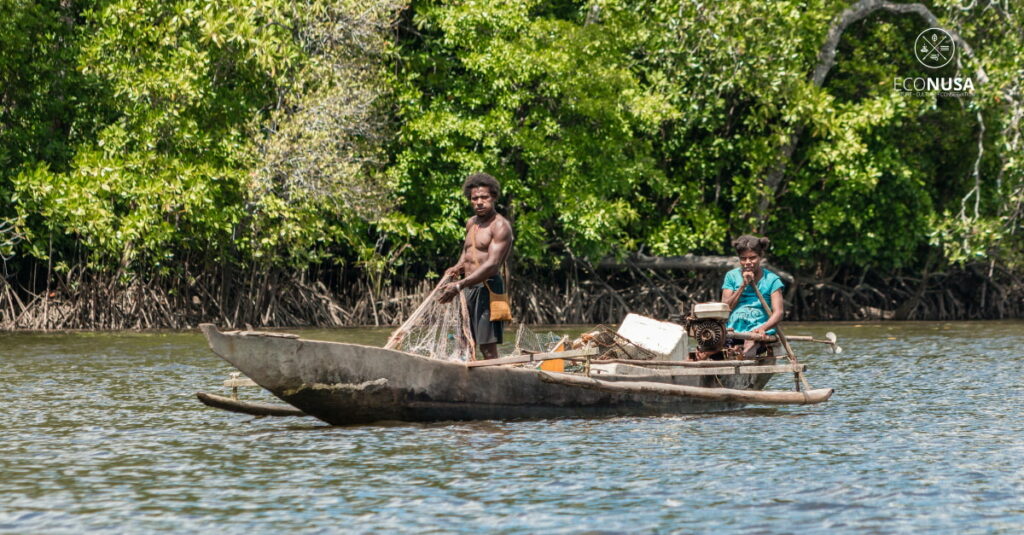
The Role of Women and Youth
Agung Pambudi of the Ministry of Forestry expressed admiration for the process in South Sorong. He witnessed firsthand how communities, with EcoNusa’s support, worked tirelessly despite significant challenges. “We saw how EcoNusa involved not only the youth but also Indigenous women. The mothers identified sacred forest sites, conservation zones, production areas, and areas tied to their cultural identity,” he explained.
Women’s involvement proved crucial. Too often, their roles were confined to the domestic sphere. Yet in reality, Papuan women are guardians of ecological knowledge. They know where sago forests are found, where medicinal plants grow, and which areas must never be disturbed because they are sacred. This knowledge is essential in designing sustainable forest management.
Read also: Meeting with DPD Committee II, Communities Hope for Recognition of Customary Forests
The youth, too, play a decisive role. For them, protecting forests is not only about preserving ancestral heritage but also about shaping their future. In the face of oil palm’s promise of quick profits, they choose the harder path of managing resources sustainably. This awareness has positioned young people at the forefront of defending customary forests.
For the people of South Sorong, the threat of palm oil is not just about losing trees or land. Oil palm brings sweeping changes to their way of life. Traditionally, they are hunter-gatherers, accustomed to relying on forest resources such as wild boar, fish, sago, and fruits. If palm plantations replace forests, that way of life vanishes, forcing them into lifestyles that erode cultural identity. “Culturally, this would mean an enormous transformation,” Agung said. Protecting forests, therefore, is not only about safeguarding the environment but also about preserving identity.
Building Economic Independence
While awaiting formal recognition from the central government, supported by EcoNusa, communities have begun developing small enterprises rooted in their customary forests. They established social forestry business groups focusing on abundant local commodities. Some groups sell wild boar meat from traditional hunting, others produce banana chips from community gardens, while another has started a homestay for visitors. These may seem like modest steps, but they are important proof that sustainable forests can generate real economic benefits.
Lina Amalia of Katadata noted that social forestry has demonstrated significant economic impact. A Katadata study recorded direct economic contributions worth IDR 764 billion in a single year, and nearly IDR 1 trillion when multiplier effects were included. Moreover, social forestry has shifted youth aspirations. Whereas many once left their villages to seek livelihoods elsewhere, increasing numbers are now choosing to stay and manage forest resources. This shows that forests not only safeguard the environment but also create new hope for the younger generation.


